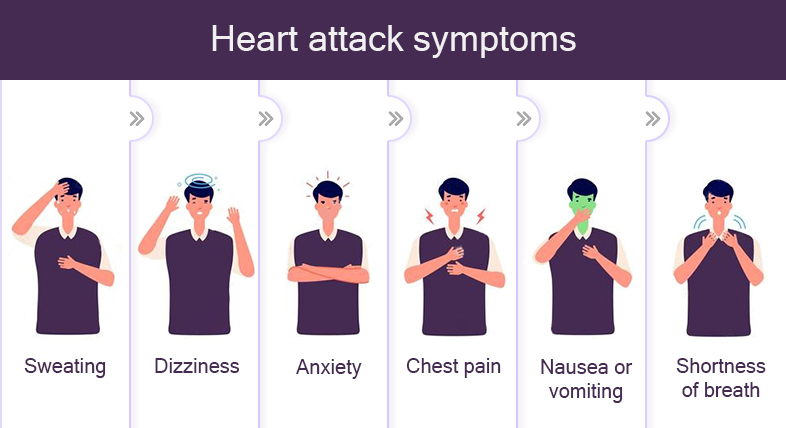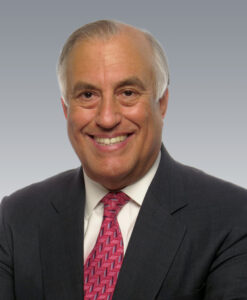Gas pain, indigestion, heartburn, and even jaw pain can be a clue to a heart blockage. Our non-invasive testing can be scheduled in an expeditious manner to hopefully reassure you that a blockage is unlikely.
Gas, heartburn, and heart attack can have similar symptoms that often make it tough to diagnose your condition accurately and alleviate the pain. Knowing the difference helps understand what is happening and seek professional medical advice timely to avoid any complications. Dr. Steven Reisman at the New York Cardiac Diagnostic Center evaluates your symptoms using state-of-the-art diagnostic equipment and tests to pinpoint the source of the problem. He will come up with multidisciplinary approaches to relieve the pain in your chest and return you to your normal activities without any delay.
Pain in Your Chest – Gas or Heart Attack

Gas pain can hit you like a sharp, jabbing pain that leaves you still for a few seconds. The feeling rises in your chest and leaves a sour taste in the mouth. This pain should not be taken lightly, as it could be a sign of a heart attack.
Gas pain in your chest is usually not a cause for concern, even though it causes pressure or a feeling of discomfort. It is most often felt in the abdomen but can also occur in the chest. Sometimes it is difficult to differentiate it from other types of chest pain, including the one resulting from a heart attack.
Gas
Gas that gathers in the stomach or esophagus can feel like heart-related pain. It can be embarrassing and annoying, but it is natural to pass gas 10 to 12 times a day.
Signs of gas include:
- Burps
- Flatulence
- Sharp pain or cramps in the stomach or abdomen
- Moving pain in the lower regions of the stomach
- Feelings of having your stomach in knots
- Bloating
- Indigestion
Possible causes of gas include food intolerance, heartburn, food poisoning, excessive carbonation, and too much fiber in the diet. Harmless gas pain in the chest goes away quickly with home remedies or treatment with over-the-counter medication.
Taking preventative measures and seeking medical advice can help to prevent other complications. Diagnosing persistent and severe gas pain in the chest is necessary for avoiding heart-related complications.
Heartburn
It is a mild feeling of discomfort or pain when the stomach acid moves up through the esophagus, the tube that connects the stomach to the throat.
It can also be a burning sensation in the stomach that moves up into the chest. Heartburn usually occurs soon after eating, especially when you are lying down or bending over. It can even wake you up from sleep, especially if you go to sleep soon after eating, without letting the food digest.
It is not the same as nausea or vomiting but leaves a sour taste in the mouth, or you may get the taste of what you ate last. Taking antacids is the best way to take care of heartburn and prevent discomfort.
Signs of Heart Attack
Common indications of a heart attack include:
- Pain or discomfort in the chest accompanied by heaviness and pressure
- Ache, burning and squeezing pain
- Pain in one or both arms, left shoulder, neck, back, throat, jaw, or stomach
- Shortness of breath with or without chest discomfort
- Sudden fatigue
- Vomiting or nausea
- Cold sweats and perspiration
- Anxiety without any apparent reasons
- Heart palpitations
- Elevated heart rate
Heart attack signs are different in men and women. According to heart specialists, chest pain or discomfort is the most common indicator for men and women. As compared to men, women are more likely to experience shortness of breath, vomiting or nausea, and back or jaw pain.
They were able to squeeze me in for the stress test, which saved me to book another appointment. Dr. Reisman is very patient and able to walk through details on what’s needed for next step. Recommend it! 橙子
Diagnosing Gas Pain And Heart Attack
Determining gas pain in the chest is crucial for avoiding life-threatening complications. The doctor recommends tests to look for heart problems. They include:
- Physician examination
- ECG
- Blood tests
Once the heart conditions are ruled out, the doctor may recommend other tests to identify possible causes of chest pain, such as:
- Blood or skin tests to check for allergies or food intolerance
- Tests for chronic inflammatory conditions, such as Crohn’s disease or ulcerative colitis
- Upper GI endoscopy to check for damage to the esophagus, stomach, or duodenum
- Abdominal ultrasound or CT scan to get images of abdominal organs
Seeking medical attention is necessary to know what you are going through and to get effective treatment. Some heart attacks are intense and very quick, while others start slowly with minor aches or pains. Looking out for symptoms can help you determine what feels normal.
If you pass gas or belch, and the pain or heaviness on your chest goes away, it could be stomach pain or heartburn. If the pain persists and you also experience shortness of breath or nausea, it may be a sign of a heart-related issue and must be checked by an experienced heart doctor.
Visit Dr. Steven Reisman at the New York Cardiac Diagnostic Center to have your symptoms and complaints accurately diagnosed and know what you are going through. The expert doctor at local cardiology will examine your condition thoroughly and run tests to determine if there is a significant risk of coronary artery disease. He will plan a thorough and non-invasive evaluation to determine your cardiovascular status.

Dr. Steven Reisman is an internationally recognized cardiologist and heart specialist. He is a member of the American College of Cardiology, American Heart Association, and a founding member of the American Society of Nuclear Cardiology.
Dr. Reisman has presented original research findings for the early detection of "high risk" heart disease and severe coronary artery disease at the annual meetings of both the American College of Cardiology and the American Heart Association. Dr. Reisman was part of a group of doctors with the Food and Drug Administration who evaluated the dipyridamole thallium testing technique before the FDA approved it.
Dr. Steven Reisman's academic appointments include Assistant Professor of Medicine at the University of California and Assistant Professor at SUNY. Hospital appointments include the Director of Nuclear Cardiology at the Long Island College Hospital.



